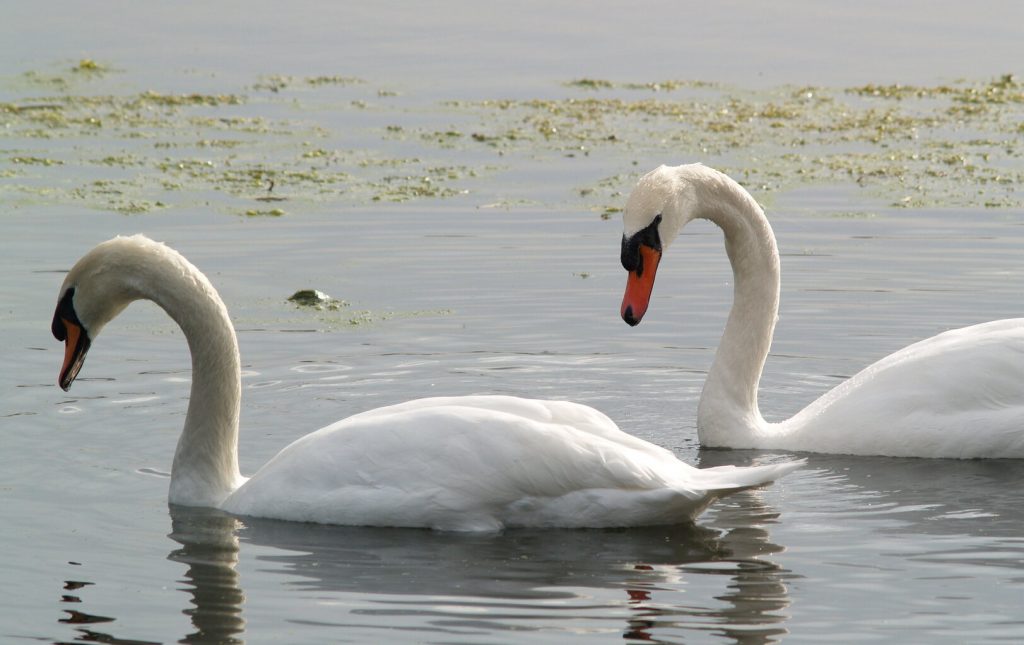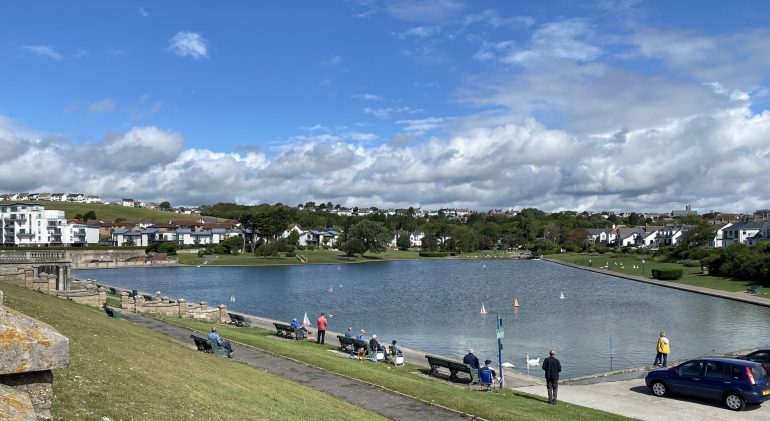Avian flu cases have been confirmed at the lake at The Knap Gardens in Barry
PEOPLE are being told to stop handling dead and feeding ill swans at Barry beauty spot after a confirmed case of bird flu.
A number of swans have been reported to be unwell with birds found dead in and around the lake at Knap Gardens.
“We’ve received reports of people handling live and dead swans at the Knap,” said Vale of Glamorgan Council in a statement.
“Risk to human health from Avian flu increases with direct contact, please do not handle the birds.
“If this continues, we may need to close the lake.”
As a precautionary measure, the council is asking all members of the public to avoid hand-feeding birds at any of their parks.
Council officers are patrolling the gardens.
Whilst Avian Influenza poses a serious risk to wild and domestic birds, it is very rare for the virus to be passed from birds to humans or other mammals. The risk to public health is very low.
Avian Influenza spreads from bird to bird by direct contact or through contaminated bodily fluids.
It can also be spread by contaminated feed and water, or by dirty vehicles, clothing and footwear.

In a Facebook post, MP for the Vale of Glamorgan, Alun Cairns, said: “I have been contacted by a number of distressed residents about reported dead swans and other birds in the area.
“I have written to the Council as a matter of urgency and they have since confirmed a case of Bird Flu at Knap Gardens.
“Please don’t hand feed any birds.”
One comment on the MPs post said: “We were down there Saturday and some of the swans didn’t look well at all.”
Another comment said: “That is so very sad, everyone loves seeing the birds on the Knap.”
The UK is currently experiencing an outbreak of bird flu with cases in wild and commercial birds.
Wild birds such as geese and gulls migrating to the UK from mainland Europe during the winter can carry the disease.
There are currently five confirmed cases of bird flu in poultry and captive birds in Wales after two new cases were discovered in Mid-Wales on February 21.
Restrictions have been put into place at these sites to limit the risk of disease spread.
Anyone who finds a dead wild waterfowl (swans, geese or ducks) or other dead wild birds, such as gulls or birds of prey, is urged to report them to the Animal and Plant Health Agency (APHA) on 03459 33 55 77.
“Any visibly sick birds should also be reported via this number and must not be touched or handled,” said the council statement.



